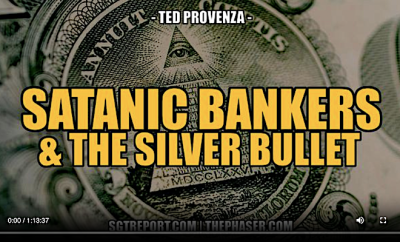
Economy
Big Pharma Revealed As Puppetmaster Behind TPP Secrecy
from Zero Hedge:
It is no secret that US healthcare corporations have been among, if not the biggest beneficiaries of Obamacare: by “socializing” costs and spreading the reimbursement pool over the entire population in the form of a tax, pharmaceutical companies have been able to boost medical product and service costs to unprecedented levels with the help of complicit insurance companies who have subsequently passed through these costs to the consumer, in the process sending the price of biotech and pharma stocks to levels not seen since the dot com bubble.
But when it came to the highly confidential TPP, it was unclear just which corporations were dominant in pulling the strings.
Now thanks to more documents published by Wikileaks, and analyzed by the NYT, it appears that “big pharma” is once again pulling the strings, this time of the Trans Pacific Partnership, which if passed will “empower big pharmaceutical firms to command higher reimbursement rates in the United States and abroad, at the expense of consumers” according to “public health professionals, generic-drug makers and activists opposed to the trade deal.”
In other words, just like the narrowly-passed Obamacare was a gift for big Pharma, so America’s legal drug dealers are now trying to go for another price boosting catalyst, one which however will involve not just the US but some 12 countries in the Asia-Pacific region. Worst of all, the negotiations for the next price increase is taking place in utmost secrecy where “American negotiators are still pressing participating governments to open the process that sets reimbursement rates for drugs and medical devices.”
As RT notes, the latest disclosure links the Healthcare Annex to the secret draft of the quite aptly-named “Transparency” Chapter of the TPP, along with each country’s negotiating position. The leaked “Annex on transparency and procedural fairness for pharmaceutical products and medical devices” is dated from December 2014, with the draft being restricted from release for four years after the passage of the TPP into law.
RELEASE: TPP Transparency Chapter Healthcare Annex https://t.co/jc4hYqh06V#TPP #TTIP #TISA pic.twitter.com/xIlO4QCUu6
— WikiLeaks (@wikileaks) June 10, 2015
Worse, while in the US the rising healthcare costs are at least spread across a broader social safety net, the TPP is targeting countries where the potential jump in drug prices will have dramatic effects. As the NYT notes, “foreign governments and health care activists have accused pharmaceutical giants, mostly based in the United States, of protecting profits over public health, especially in poor countries where neither the government nor consumers can afford to pay rates anywhere close to those charged in wealthier nations.”
That fight re-emerged in the Pacific trade negotiations, which involve countries with strong cost-containment policies, like New Zealand, as well as poor countries like Peru and Vietnam.
The agreement “will increase the cost of medicines worldwide, starting with the 12 countries that are negotiating the Trans-Pacific Partnership,” said Judit Rius Sanjuan, a lawyer at Doctors Without Borders, a humanitarian organization that provides medical care in more than 60 countries.
None other than the CEO of Mylan explained in the simplest possible way what is going on: a government mandated monopoly under the guise of a trade pact: “Heather Bresch, the chief executive of Mylan, one of the largest generic-drug makers, said the brand-name pharmaceutical industry was “establishing, through U.S. trade policy, an international system designed to maximize its monopolies.”
But where the alarm bells truly go off is when someone, anyone, uses the word “fair” to justify policy, such as surging drug costs. To wit: “drug companies, however, say they need to be able to charge fair prices to compensate for the billions of dollars and decades of research that go into their medicines.”
What is amusing is that the true motive behind the TPP’s secrecy have been quite clear to virtually everyone but the population of the TPP’s host nation:
“It was very clear to everyone except the U.S. that the initial proposal wasn’t about transparency. It was about getting market access for the pharmaceutical industry by giving them greater access to and influence over decision-making processes around pricing and reimbursement,” said Deborah Gleeson, a lecturer at the School of Psychology and Public Health at La Trobe University in Australia. And even though the section, known as the transparency annex, has been toned down, she said, “I think it’s a shame that the annex is still being considered at all for the T.P.P.”
RT adds that one country that should be in arms over the TPP is Australia:
The secret negotiations now allegedly reveal that Australia’s Pharmaceutical Benefits Scheme might be undermined, pushing up the cost of medicines in the country.
“United States trade negotiators have aggressively pushed for provisions favoring multinational pharmaceutical manufacturers at the expense of national governments and public healthcare systems,” the Sydney Morning Herald wrote.
But the one place where the biggest price shock may be unleashed is, not surprisingly, the US itself :
The leaked TPP document “shows that the pact could expose Medicare to pharmaceutical company attacks and constrain future policy reforms, including the ability of the US government to curb rising and unsustainable drug prices,” the US consumer rights advocacy group and think tank Public Citizen said in its Wednesday statement.
The group says president Obama’s administration has been “acting at the behest of pharmaceutical companies,” and the secret negotiations it has been holding within the partnership might affect Medicare, limiting “Congress’ ability to enact policy reforms that would reduce prescription drug costs for Americans.”
The same Congress, incidentally, which gladly washed its hands of any discussion of the TPP when the Senate “fast-tracked” its passage and as the NYT further notes, “a House vote on final passage of the bill, now expected on Friday, appears extremely close.”
In other words, in exchange for a few million in lobby spending, aka bribes, by Big Pharma, the US Congress has once again sold out the US population, and this time it even voluntarily bypassed even the mock democratic process of debating the law it will pass.
Why? Just so shareholders of pharmaceutical companies could reap even greater profits at the expense of not just the US population, but of the populations of some of the biggest US trading partners, all of whom are about to see the prices of medical care skyrocket.
And since nothing is confirmed until it is officially denied, here is the punchline:
“The transparency annex in T.P.P. is not subject to Investor-State Dispute Settlement, and nothing in its provisions will undermine our ability to pursue the best health care policy for Americans, including any future action on health care expenditures and cost containment,” a trade representative spokesman said.
Those Americans who may wish to challenge the claim well, they are out of luck: Congress is about to make sure there is no way anyone can have a say into what big corporations have in store for the US population.
The full Transparency Chapter Healthcare Annex below:












